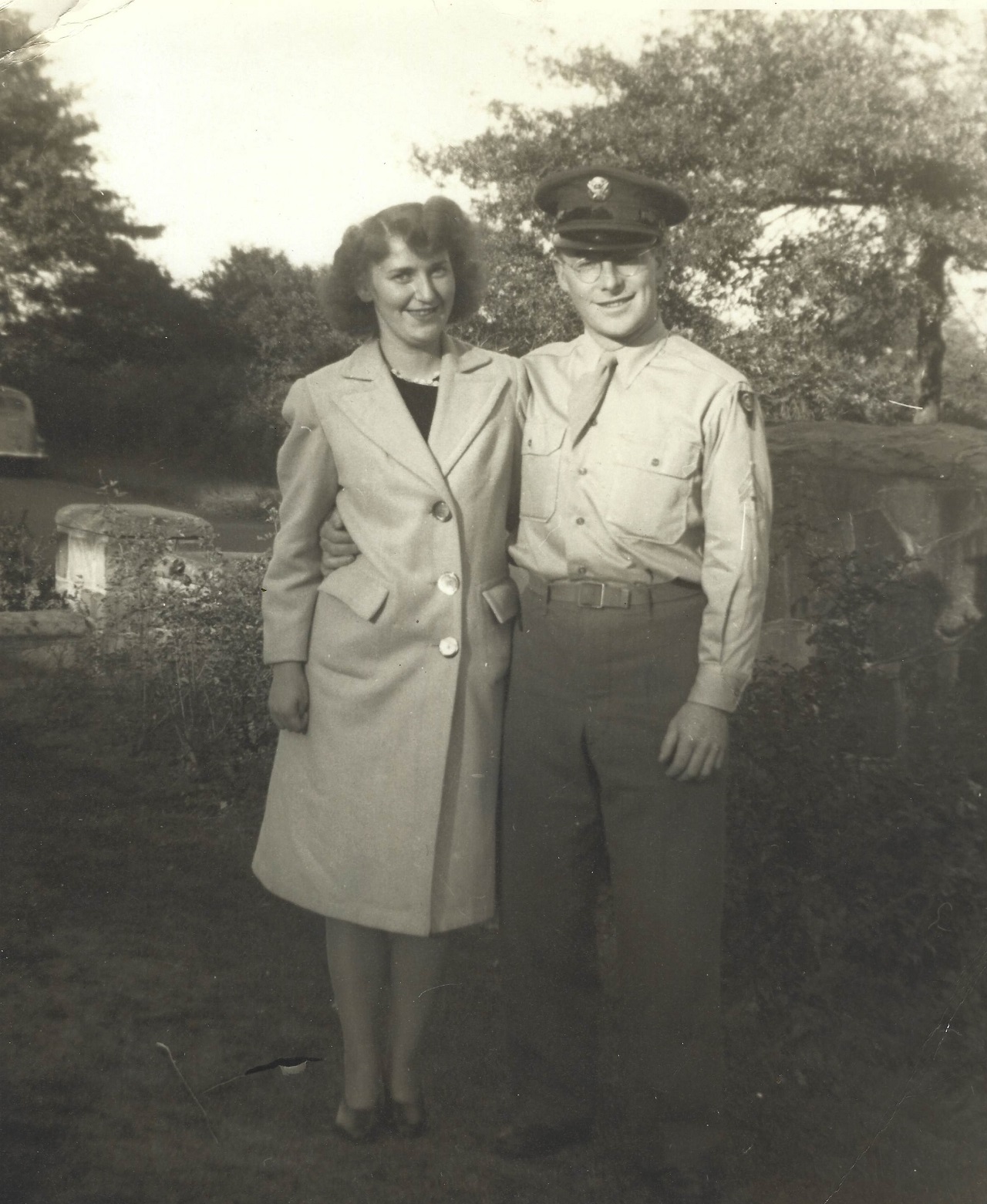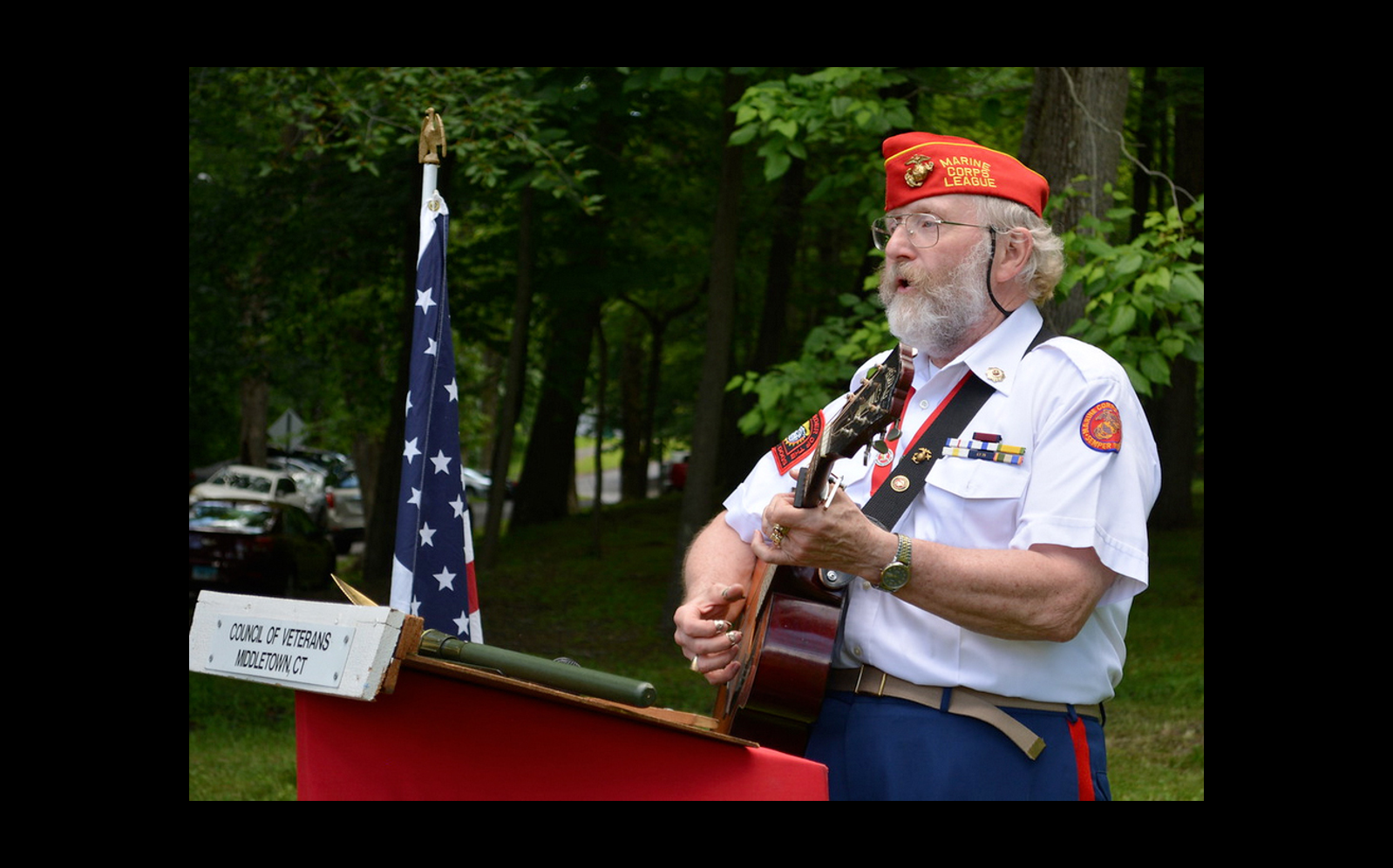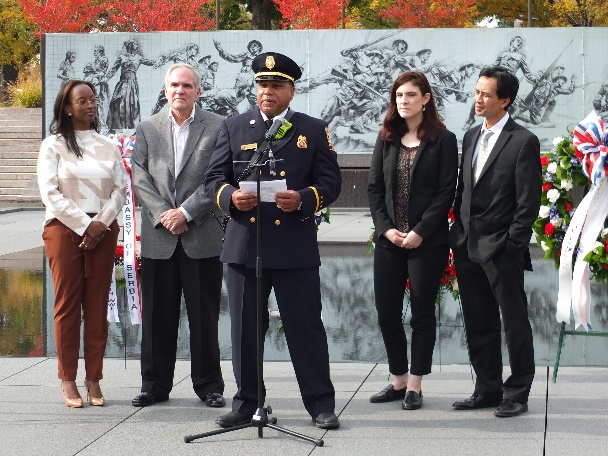Connecticut’s 1st State Troubadour Connects To WWI
{source}<iframe width="1000" height="563" src="https://www.youtube.com/embed/yamumk-Gqfk" title="YouTube video player" frameborder="0" allow="accelerometer; autoplay; clipboard-write; encrypted-media; gyroscope; picture-in-picture" allowfullscreen></iframe> {/source}
Connecticut's 1st State Troubadour Connects To World War I
By Tom Callinan, Connecticut's 1st Official State Troubadour
Special to the Doughboy Foundation web site
As background to my formative years, my parents met at a barn-dance in Middletown, CT, my mother's hometown, in the early 1940s. My father, Joe, was the sixth of seven children, born in New Haven to Irish immigrant parents, who eked out a living until my grandfather succumbed to the Spanish Flu, when my dad was only five. His widowed mother was left with six at home, and another one who had gone to Ireland to live with his maternal grandparents, and helped tend to their meager farm. With flaming, red hair and a muscular build, Dad was a scrappy kid, as were many of the poor, fatherless, Depression-Era boys. To help his mother, Dad dropped out of high school to join the Civilian Conservation Corps to earn $30 a month, $25 of which was sent home. In addition to being a boxer, Dad was a born entertainer, who had performed in minstrel shows and on street corners during the 1930s as an amateur barbershop-quartet singer.
 Ann Coleman and Joe Callihan, Tom Callinan's parents, during World War II. Joe served with the Army's 83rd Infantry Division in the European Theater of Operations, while Ann served as the secretary of the local Draft Board.When WWII erupted, Dad served with the Army's 83rd Infantry Division in the European Theater of Operations, while my mother, Ann Coleman, an only child, had grown up in a middle-class family, and graduated high school in 1940 with a commercial diploma. During the war she served as the secretary of the Draft Board in Middletown.
Ann Coleman and Joe Callihan, Tom Callinan's parents, during World War II. Joe served with the Army's 83rd Infantry Division in the European Theater of Operations, while Ann served as the secretary of the local Draft Board.When WWII erupted, Dad served with the Army's 83rd Infantry Division in the European Theater of Operations, while my mother, Ann Coleman, an only child, had grown up in a middle-class family, and graduated high school in 1940 with a commercial diploma. During the war she served as the secretary of the Draft Board in Middletown.
Before Mom was born, her late-uncle, Jeremiah J. Coleman served with the 107th Regiment of the 77th Division (National Army) in The Great War. He was killed in action at Chateau Thierry, France in late-August, 1918, and other than seeing his photo when we paid frequent visits to my Aunt Mary (Uncle Jerry's sister), I knew little about him, except that he is interred in St. John's Cemetery in Middletown; he's listed on the WWI memorial obelisk on the Washington Terrace Green; and one of the trees planted in memory of Middletown's fallen was planted in his honor.
In the late 1960s, I was an English major/Music minor at Central Connecticut State College (now University), with eyes toward becoming a teacher. However, a number of factors caused my life to spiral out of control, and as a result, I dropped out of school. Pretty much rudderless, I bounced-around from job-to-job, trying to deal with my free-fall with too much alcohol, and too little self-control. In the first draft lottery of 1970, I received number 29, so I decided to turn my life around by enlisting in the Marine Corps. As luck would have it, while being processed for deployment to Vietnam, the Marine directly ahead of me in line was the last 0311 (rifleman) in the quota for DaNang, so I was diverted to Camp Pendleton, CA, and never got out of the country.
After my Honorable Discharge, I returned to CCSC to resume my academic studies, and graduated with a B.S. in Secondary Education in 1973. That led to a junior high school teaching job, and a serendipitous meeting with two musicians who had a weekly gig at a pub in Hartford, performing Irish music and sea chanteys. Since my musical proclivities ran parallel to those genres, they asked me to sit-in, and in late-1973 I became the third member of The Morgans, which became known as "Connecticut' Premier Irish and Sea Songs Ensemble."





